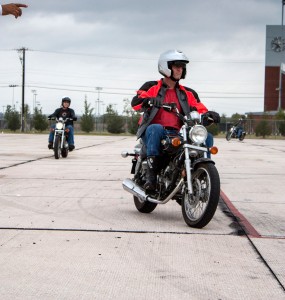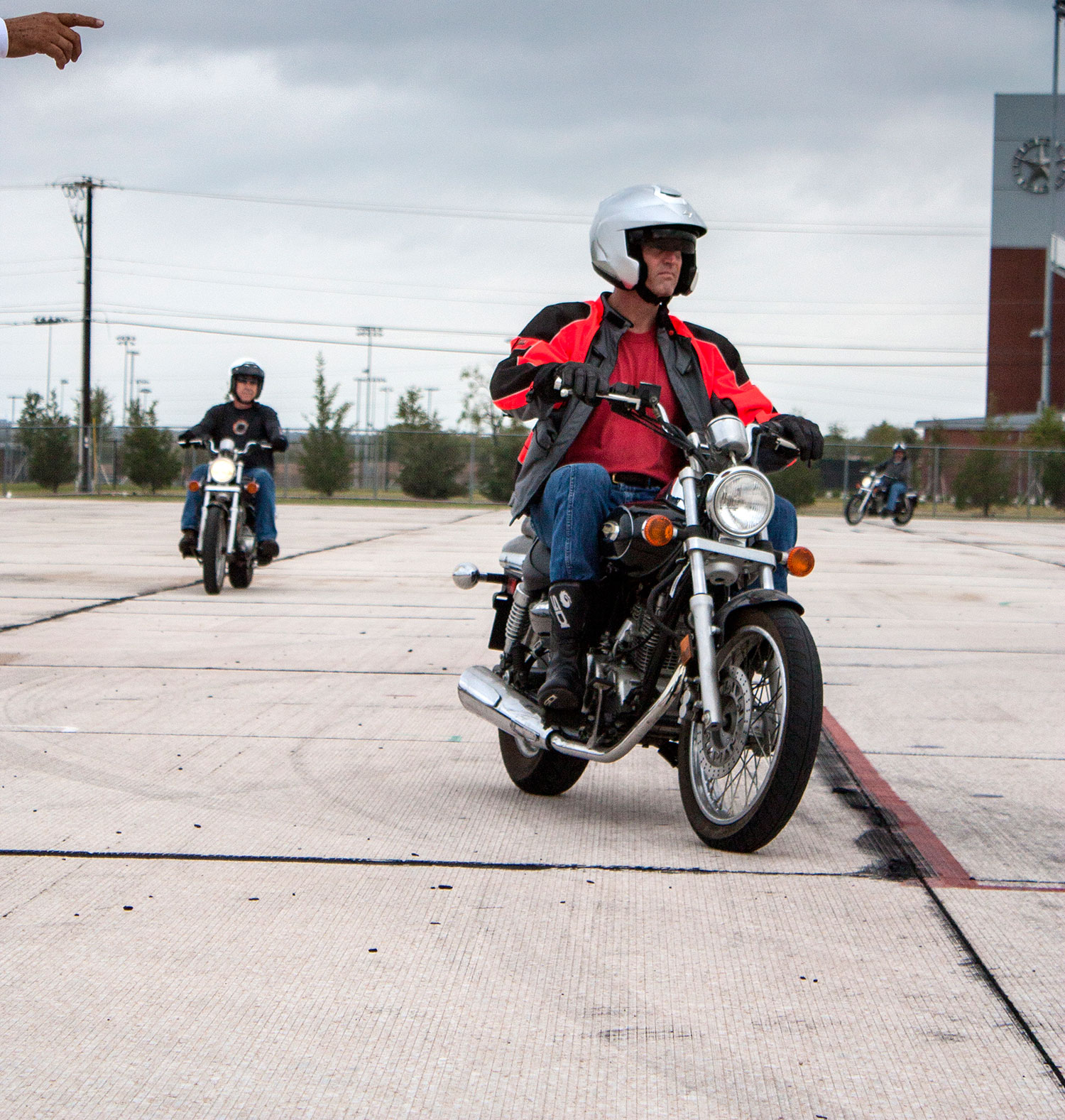By Taylor Jensen/nw news editor

Carrie Duke/The Collegian
Though the issue of motorcycle safety is serious, a NW instructor said he wants his motorcycle-riding course to be enjoyable.
Herman Fulford said most course instructors have a minimum of 25 years of riding experience and at least 10 years teaching the course.
Fulford himself has taught for 17 years and has ridden even longer.
“When I was in college, a motorcycle was my transportation, and they have been a part of my life ever since,” he said. “But after I took the course some 18 years ago, I realized I was not as good as I led myself to believe. I decided to teach the course so others could benefit from an activity that is not only enjoyable but also a viable means of transportation.”
TCC offers two courses: the basic rider’s course for people who want their license and those who have never ridden and the experienced rider’s course for licensed motorists who want to update their skills, Fulford said.
“If someone is undecided about taking the course, I recommend they come visit us during class or a range activity and talk with the instructors and students taking the course,” he said.
A study of 5,000 motorcycle fatalities indicated that 90 percent of them were either self-taught or taught by a friend, Fulford said.
“If someone is considering becoming a rider, it seems quite prudent to learn the correct way in a large, relatively hazardous-free parking lot,” he said. “It is a small investment of time and money to make such an important decision in one’s life.”
NW vice president of continuing education Gary Goodwin said someone doesn’t actually have to own a motorcycle to take the course.
“We have 30 motorcycles and a couple of scooters,” he said.
Goodwin said he came to TCC in 1981 and remembers when only two motorcycle courses were taught in the county.
“Since then, there has been a proliferation of people offering it,” he said. “There are also more female riders than I’ve ever seen.”
Students should take the course because it will help determine what they are capable of as a rider and it also provides them a discount on their motorcycle insurance, Goodwin said.
“I’ve never instructed the course, but I’ve taken it a couple of times,” he said. “It was fun.”
Motorcycle rider instructor John Kresena started teaching the course in the early ’70s and started up again in the 2000s.
“I came back for the fun of it. It’s a fun class to teach,” he said. “I think everyone should take some type of safety course. When I started riding in the ’60s, everything was self-taught.”
Riding a motorcycle is 90 percent mental and 10 percent physical, and the course teaches the physical aspect, Kresena said.
“Riding a motorcycle is like flying a plane. It’s the stopping that counts,” he said. “It’s all about muscle memory. You just have to become accustomed to the bike, and that’s what we teach.”
Kresena said teaching the course has even made him a better rider.
“I think everyone who has an interest, whether to save gas or just the fun of it, should take the course,” he said. “Just think about a circus. They have monkeys riding motorcycles. If a monkey can do it, why can’t you?”

